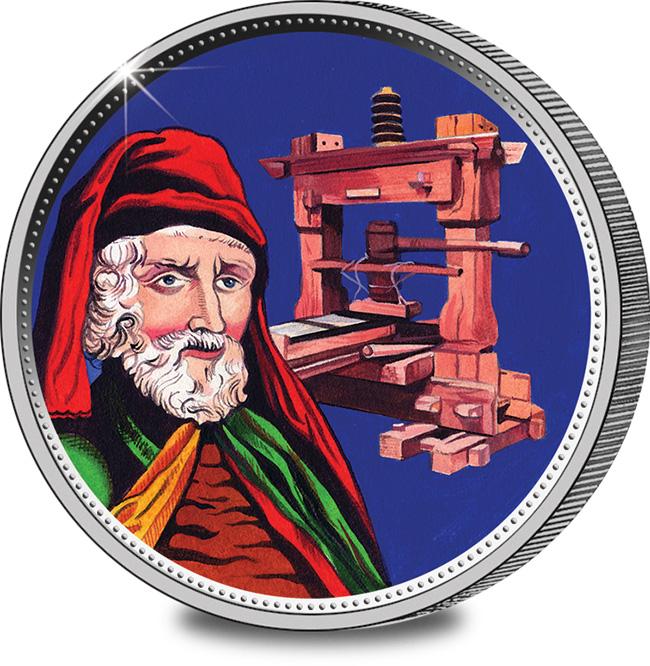
 |
Full name: William Caxton
Born: Between 1415 - 1425
Invention/Achievement: The first printing
press in Britain
Date of
introduction/Achievement: 1476
Died: 1491/2
|
It's fair to say that William Caxton transformed cultural life
in England by being the first to print books in moveable type and
also to publish them. Despite this fame, some details of his
life are sketchy. He was born somewhere in Kent, possibly in
Hadlow or Tenterden, probably sometime between 1415 and 1424.
By 1438 he was apprenticed to Robert Large, a prominent mercer
who was Master of the Mercers Company and Lord Mayor of London in
1439. Large died in 1441 and after this Caxton began making
trips to Brugge and settled there in 1453. He prospered and
became an influential member of the English trading community in
Flanders and Holland.
In 1463 he became Governor of the Company of Merchant
Adventurers of London, his business travels took him to Burgundy
where he became part of the household of Margaret, Duchess of
Burgundy (the sister of the English King Edward IV) possibly as her
financial adviser.
Here by 1471 he had translated Raoul Le Fèvre's "Recueil de
histories de Troye". He later wrote how his "… pen became
worn, his hand weary, his eye dimmed" with copying in longhand.
Some 20 years earlier Gutenberg had introduced printing with
moveable type to Europe. Caxton went to Cologne and at great
personal cost learnt the techniques of printing.
In 1474 he set up a printing press in Brugge and in 1475 printed
"Recueil de histories de Troye", the first book printed in English.
Then in 1476 he set up a printing press at Westminster in London
and among his earliest output were Chaucer's "Canterbury Tales" and
"Dictes and Sayenges of the Phylosophers".
In all, Caxton is known to have produced over 100 books, 80% of
them in English. Caxton catered for a wide public with his
output including an encyclopaedia and the first illustrated book
printed in English.
As well as being a printer, he was a translator with a working
knowledge of French, Dutch and Latin, publisher and bookseller.
He is also credited with helping to standardise the English
language. He died in 1491 or 1492 and was buried in St
Margaret's Westminster.